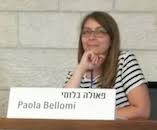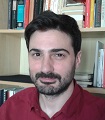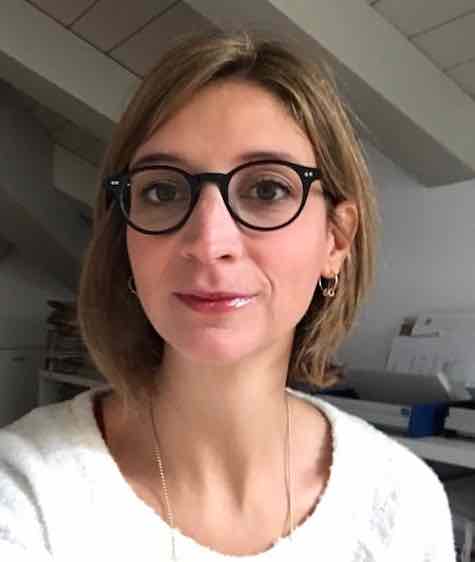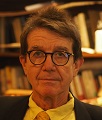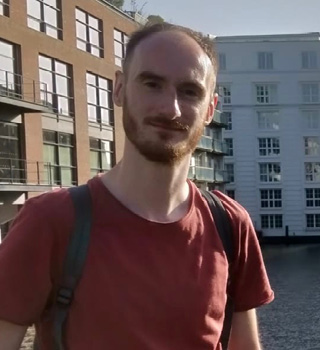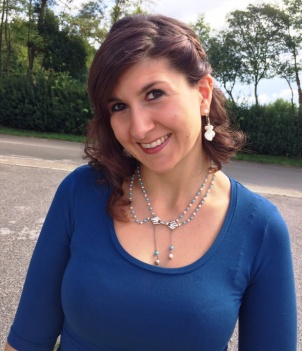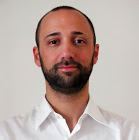Studying at the University of Verona
Here you can find information on the organisational aspects of the Programme, lecture timetables, learning activities and useful contact details for your time at the University, from enrolment to graduation.
Academic calendar
The academic calendar shows the deadlines and scheduled events that are relevant to students, teaching and technical-administrative staff of the University. Public holidays and University closures are also indicated. The academic year normally begins on 1 October each year and ends on 30 September of the following year.
Course calendar
The Academic Calendar sets out the degree programme lecture and exam timetables, as well as the relevant university closure dates..
| Period | From | To |
|---|---|---|
| I SEMESTRE | Oct 3, 2016 | Jan 21, 2017 |
| II SEMESTRE | Feb 27, 2017 | Jun 10, 2017 |
| Session | From | To |
|---|---|---|
| Lingue - SESSIONE INVERNALE | Jan 23, 2017 | Feb 25, 2017 |
| Lingue - SESSIONE ESTIVA | Jun 12, 2017 | Jul 29, 2017 |
| Lingue - SESSIONE AUTUNNALE | Aug 21, 2017 | Sep 23, 2017 |
| Session | From | To |
|---|---|---|
| Lingue - Sessione di laurea invernale | Apr 3, 2017 | Apr 8, 2017 |
| Lingue - Sessione di laurea estiva | Jul 10, 2017 | Jul 15, 2017 |
| Lingue - Sessione di laurea autunnale | Dec 18, 2017 | Dec 21, 2017 |
| Lingue - sessione di laurea invernale | Mar 23, 2018 | Mar 29, 2018 |
| Period | From | To |
|---|---|---|
| FESTA DI OGNISSANTI | Nov 1, 2016 | Nov 1, 2016 |
| FESTA DELL'IMMACOLATA CONCEZIONE | Dec 8, 2016 | Dec 8, 2016 |
| Vacanze Natalizie | Dec 23, 2016 | Jan 7, 2017 |
| Vacanze Pasquali | Apr 14, 2017 | Apr 18, 2017 |
| Festa della Liberazione | Apr 25, 2017 | Apr 25, 2017 |
| Festa dei Lavoratori | May 1, 2017 | May 1, 2017 |
| FESTA DEL SANTO PATRONO SAN ZENO | May 21, 2017 | May 21, 2017 |
| Festa della Repubblica | Jun 2, 2017 | Jun 2, 2017 |
| Vacanze Estive | Aug 14, 2017 | Aug 19, 2017 |
| Description | Period | From | To |
|---|---|---|---|
| ANNUALE | ANNUALE | Oct 3, 2016 | Jun 10, 2017 |
Exam calendar
Exam dates and rounds are managed by the relevant Foreign Languages and Literatures Teaching and Student Services Unit.
To view all the exam sessions available, please use the Exam dashboard on ESSE3.
If you forgot your login details or have problems logging in, please contact the relevant IT HelpDesk, or check the login details recovery web page.
Academic staff
 valentina.adami@univr.it
valentina.adami@univr.it
 paola.bellomi@univr.it
paola.bellomi@univr.it
 daniele.beltrame@univr.it
daniele.beltrame@univr.it
 riccardo.cella@univr.it
riccardo.cella@univr.it
 elisa.dallarosa@univr.it
elisa.dallarosa@univr.it
 sara.dattoma@univr.it
sara.dattoma@univr.it
 federico.febbroni@univr.it
federico.febbroni@univr.it
 veronica.gobbato@univr.it
veronica.gobbato@univr.it
Hernandez Arocha Hector Eutimio
 hector.hernandez@univr.it
hector.hernandez@univr.it
 dunia.houranimartin@univr.it
dunia.houranimartin@univr.it
 gianpaolo.lazzer@univr.it
gianpaolo.lazzer@univr.it
 stefania.montemezzo@univr.it
stefania.montemezzo@univr.it
 anna.morbiato@unive.it
anna.morbiato@unive.it
 chunye.niu@univr.it
chunye.niu@univr.it
 sara.paolini@univr.it
sara.paolini@univr.it
 valentina.savietto@univr.it
valentina.savietto@univr.it
 fabioantonio.scrignoli@univr.it
fabioantonio.scrignoli@univr.it
 alice.valdesalici@univr.it
alice.valdesalici@univr.it
Study Plan
The Study Plan includes all modules, teaching and learning activities that each student will need to undertake during their time at the University.
Please select your Study Plan based on your enrollment year.
1° Year
| Modules | Credits | TAF | SSD |
|---|
1st foreign language2nd foreign language1st foreign literature and cultureGerman literature and culture 1
2nd foreign literature and cultureGerman literature and culture 1
2° Year activated in the A.Y. 2017/2018
| Modules | Credits | TAF | SSD |
|---|
Italian literature and culture
Geography of communication and international trade
Modern and Contemporary Economic History
Theory and Techniques of communication
1st foreign language2nd foreign languageFirst language foreign literature and culture or a related courseEnglish literature and culture 2
German literature and culture 2
Spanish literature and culture 2
Second language foreign literature and culture or a related courseEnglish literature and culture 2
German literature and culture 2
Spanish literature and culture 2
3° Year activated in the A.Y. 2018/2019
| Modules | Credits | TAF | SSD |
|---|
Comparative and European Public law
Principles of international marketing
1st foreign language2nd foreign language| Modules | Credits | TAF | SSD |
|---|
1st foreign language2nd foreign language1st foreign literature and cultureGerman literature and culture 1
2nd foreign literature and cultureGerman literature and culture 1
| Modules | Credits | TAF | SSD |
|---|
Italian literature and culture
Geography of communication and international trade
Modern and Contemporary Economic History
Theory and Techniques of communication
1st foreign language2nd foreign languageFirst language foreign literature and culture or a related courseEnglish literature and culture 2
German literature and culture 2
Spanish literature and culture 2
Second language foreign literature and culture or a related courseEnglish literature and culture 2
German literature and culture 2
Spanish literature and culture 2
| Modules | Credits | TAF | SSD |
|---|
Comparative and European Public law
Principles of international marketing
1st foreign language2nd foreign language| Modules | Credits | TAF | SSD |
|---|
Legend | Type of training activity (TTA)
TAF (Type of Educational Activity) All courses and activities are classified into different types of educational activities, indicated by a letter.
Modern and Contemporary Economic History [Cognomi A-L] (2017/2018)
Teaching code
4S003356
Teacher
Coordinator
Credits
6
Language
Italian
Scientific Disciplinary Sector (SSD)
SECS-P/12 - ECONOMIC HISTORY
Period
Semester 2 dal Feb 26, 2018 al Jun 9, 2018.
Learning outcomes
This course is a survey of modern and contemporary world Economic History. What students will learn during the course will be useful in order to understand today's societies and economy, by placing these into their historical path, in a global and long run perspective.
Program
Which economic process characterised the modern and contemporary age? What's the connection between industrialisation and the economic development of the West? What's the relation between capitalism, globalisation and economic crises?
The course will try to answer to these and other questions by analysing the main matters of the modern and contemporary economic history. The aim of the course is to analyse the different aspects of the economic development since the late XVIII century to the beginning of the third millennium.
This course will deal with the following topics:
Productive and labour organisation
* the industrial revolutions in Europe
* Industrialisation outside Europe
* business organisation and development
The connection between capitalism, crisis and economic policies
* the evolution of finance
* XX c. economic crises and the war economy
* State intervention into national economies
New economies
* Europe: from post-war development to the crisis
* the Asiatic rise
* the boundaries of the economic development
| Author | Title | Publishing house | Year | ISBN | Notes |
|---|---|---|---|---|---|
| L.F. Signorini, I. Visco | L’economia italiana | Il Mulino | 2002 | Solo per non frequentanti | |
| Vera Zamagni | Perché l’Europa ha cambiato il mondo. Una storia economica | Il Mulino | 2015 | 9788815258618 | A esclusione dei capitoli 1 e 2. Sia per frequentanti che non frequentanti. |
Examination Methods
Attending students:
Written exam: three open questions.
Not attending:
Written exam: three open questions.
In order to pass the exam, all three answers need be sufficient. Every answer can obtain a maximum of 10 points (with a minimum threshold of 6 point as pass mark).
Type D and Type F activities
To discover all the teaching activities accredited by the foreign teaching college click here
Career prospects
Module/Programme news
News for students
There you will find information, resources and services useful during your time at the University (Student’s exam record, your study plan on ESSE3, Distance Learning courses, university email account, office forms, administrative procedures, etc.). You can log into MyUnivr with your GIA login details: only in this way will you be able to receive notification of all the notices from your teachers and your secretariat via email and also via the Univr app.
Student login and resources
Gestione carriere
Attendance and location
Attendance is not mandatory.
More detailed information on attendance requirements, please refer to the “Regolamento del corso di studio”, available under the “Regolamenti” section in “Il Corso”. While the Student Handbook does not require mandatory attendance, it is recommended to confirm specific attendance policies with your professors for each course, lab, or practical training.
Part time enrolment is an option. For more information, visit the Possibilità di iscrizione Part time.
Classrooms and exam locations are:
Classes and exams are held at the following locations:
- Polo Zanotto (close to the Foreign Languages and Literatures building)>
- Polo Santa Marta
Assegnazione tutore
Attività accreditate D/F
Calendario didattico dettagliato
Cambio lingua curriculare
Competenze informatiche
Competenze linguistiche (prima e seconda lingua)
Competenze linguistiche in triennale (terza lingua CFU F)
Compilazione del piano didattico
Corso di Lingua catalana a.a. 2024-25
Corso di Lingua portoghese
Erasmus+ e altre esperienze all'estero
Linguistic training CLA
Presentazione dei corsi di studio e Open day
Graduation
Saperi minimi
Internships and apprenticeships - Foreign Languages and Literatures
Internships and apprenticeships
A mandatory internship period (6 CFUs) within business organizations is included in the study plan for the Bachelor’s degree in Languages and Cultures for Tourism and International Commerce (L12).
The internship is designed to provide students with practical experience in areas relevant to their future professional careers and to help them acquire specific professional skills.
Internship activities are conducted under the direct supervision of an individual lecturer and take place at professional firms, public administration offices, and companies accredited by the University of Verona.
Credits earned through internship activities will be awarded in accordance with the detailed provisions of the current “Regolamento d’Ateneo per il riconoscimento dei crediti maturati negli stage universitari” (University Regulations for the Recognition of Credits Accrued in University Internships).
- Information for prospective students about internships can be found at Stage e tirocini.
- Information for enrolled students is available on MyUnivr - come fare per - stage e tirocini.
- Information for companies regarding internships can be found at Stage e tirocini per azienze.
For more details, please visit the following link https://www.univr.it/it/i-nostri-servizi/gestione-carriere-studenti-lingue-e-letterature-straniere/stage-e-tirocini-lingue-e-letterature-straniere


 +39 045802 8409
+39 045802 8409
